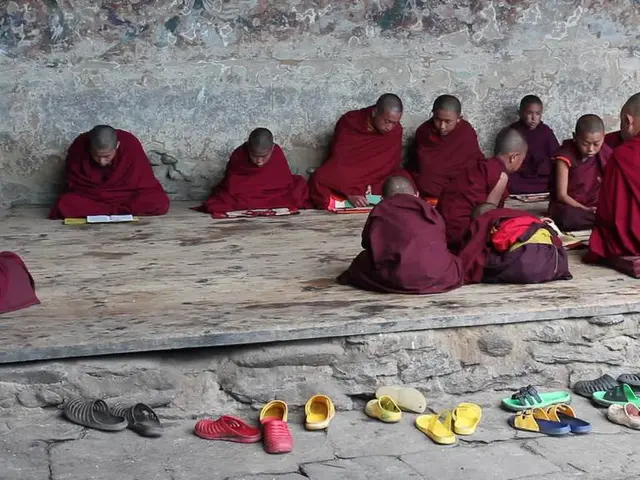Denmark ought not to compromise protections provided by the European Convention on Human Rights, advises Council of Europe.
European Council Urges Governments to Uphold Human Rights Convention Amid Calls for Review
The Council of Europe has implored European governments to maintain the strength and relevance of the European Convention on Human Rights (ECHR), following a joint appeal from Denmark, Italy, and seven other EU member states over concerns regarding the accord's interpretation, particularly on migration matters.
Alain Berset, secretary general of the 46-member Council of Europe, affirmed his organization's stance, stating that the aim should be to fortify the ECHR, not weaken it, as Europe confronts intricate challenges. The legal backbone for the Council of Europe is the European Court of Human Rights (ECHR), which enforces the ECHR treaty among its member states. Notably, while the Council of Europe and the EU share similar membership, key non-EU states—such as Turkey, the UK, and Ukraine—also belong to the former.
The nine EU countries, which include Austria, Belgium, Estonia, Latvia, Lithuania, Poland, and the Czech Republic, expressed their intention to engage in a fresh, open-minded dialogue about the interpretation of the ECHR. Berset emphasized the significance of engaging in robust debate but cautioned against misusing the ECHR as a tool wielded by governments to manipulate human rights protections according to the whims of political cycles.
Recent rulings of the ECHR on migration issues have triggered discontent among multiple European governments, as opinionated decisions have on occasion hampered deportations at critical junctures. The court has fielded disputes against Latvia, Lithuania, and Poland regarding alleged ill-treatment of migrants, while Denmark has been mandated to rectify its family reunification rules according to the court's orders. Italy has also faced numerous judgments from the ECHR regarding the country's treatment of migrants.
While Britain did not sign the letter, it has experienced confrontations with the ECHR during the tenure of the previous conservative government over its attempt to relocate migrants to Rwanda. The court's intervening measure last June, issued at the eleventh hour, prevented the initial deportation flight of migrants from the UK to Rwanda.
The shared letter advocating review was released following a meeting in Rome between Prime Minister Giorgia Meloni of Italy and Danish Prime Minister Mette Frederiksen, both of whom operate under hardline stances on migration.
- The debate about the interpretation of the European Convention on Human Rights (ECHR) in relation to politics, particularly on migration matters, has extended to the realm of art and news, with several European governments seeking a fresh dialogue.
- Alain Berset, the secretary general of the Council of Europe, has expressed concern about the potential misuse of the ECHR in policy-and-legislation, cautioning against its manipulation according to the whims of political cycles.
- Amidst the general-news of European governments' calls for a review of the ECHR, space has been given to discussions about the relevance and importance of the Convention as a cornerstone of human rights protections, especially in light of the recent rulings on migration issues.








